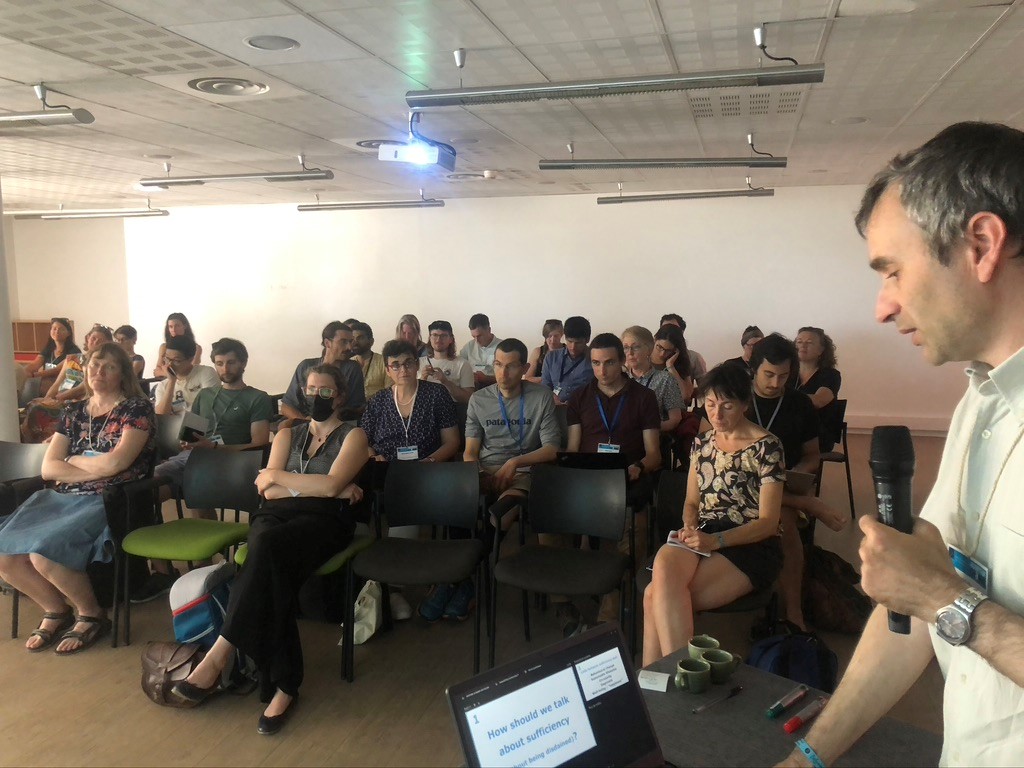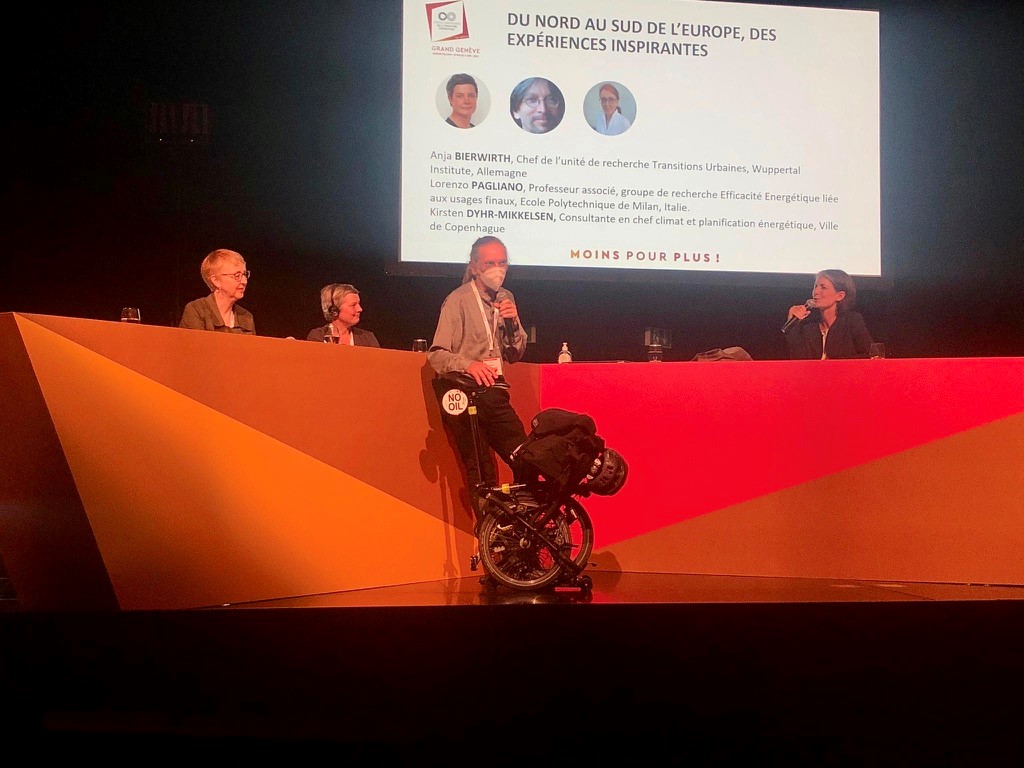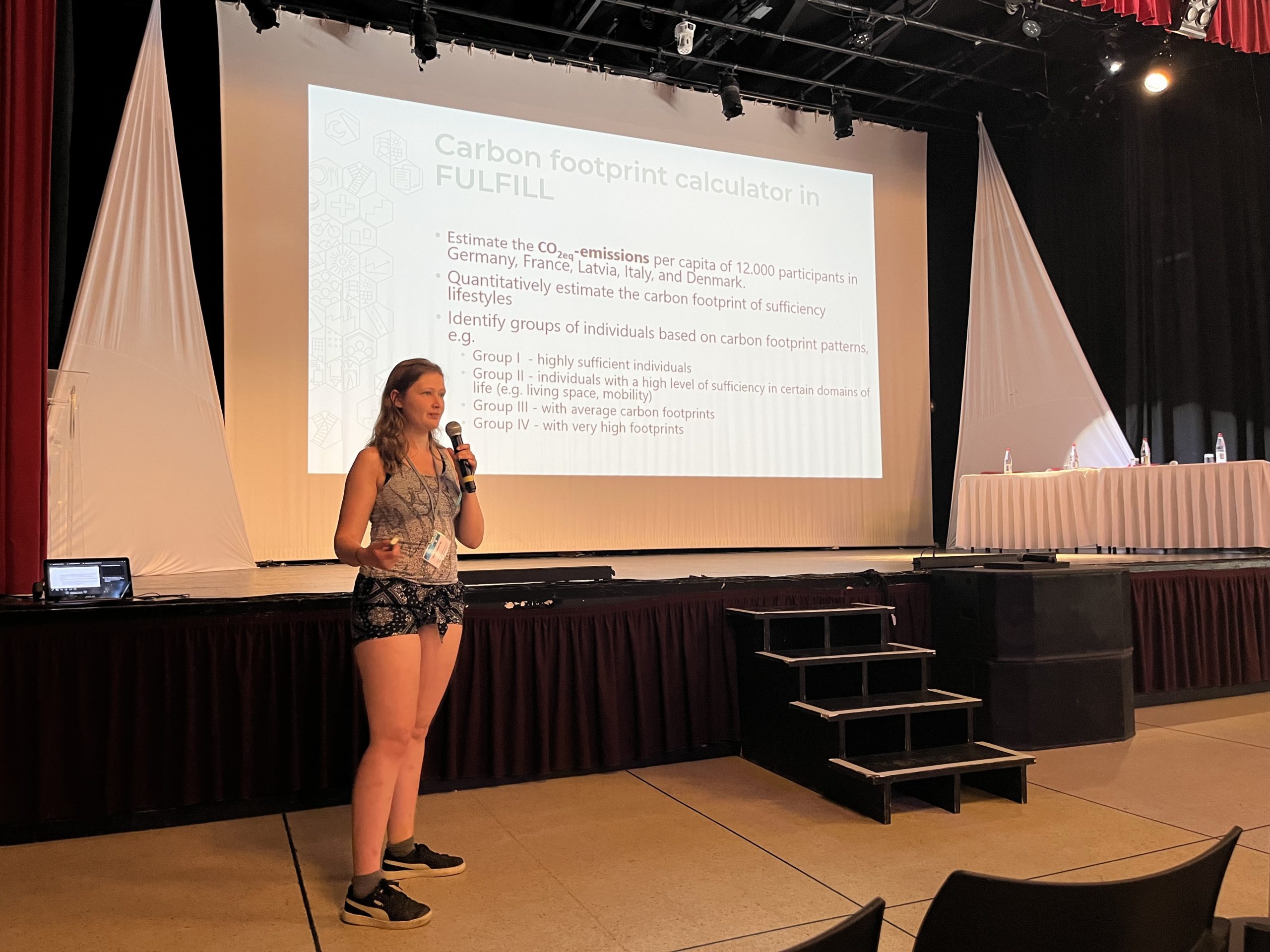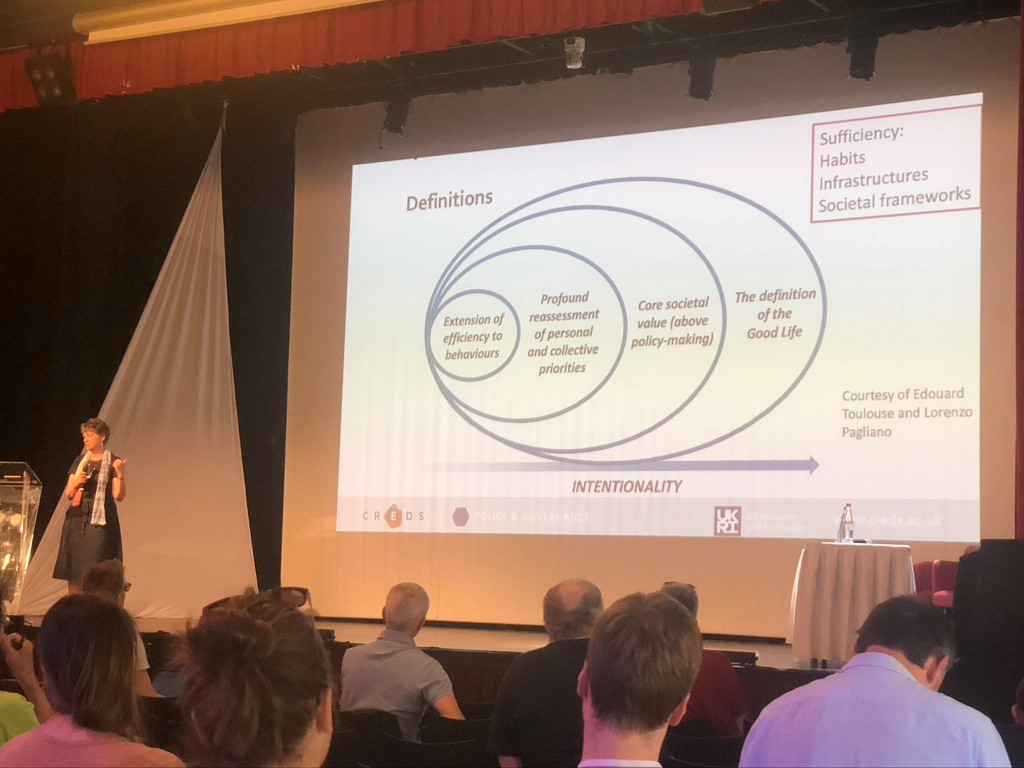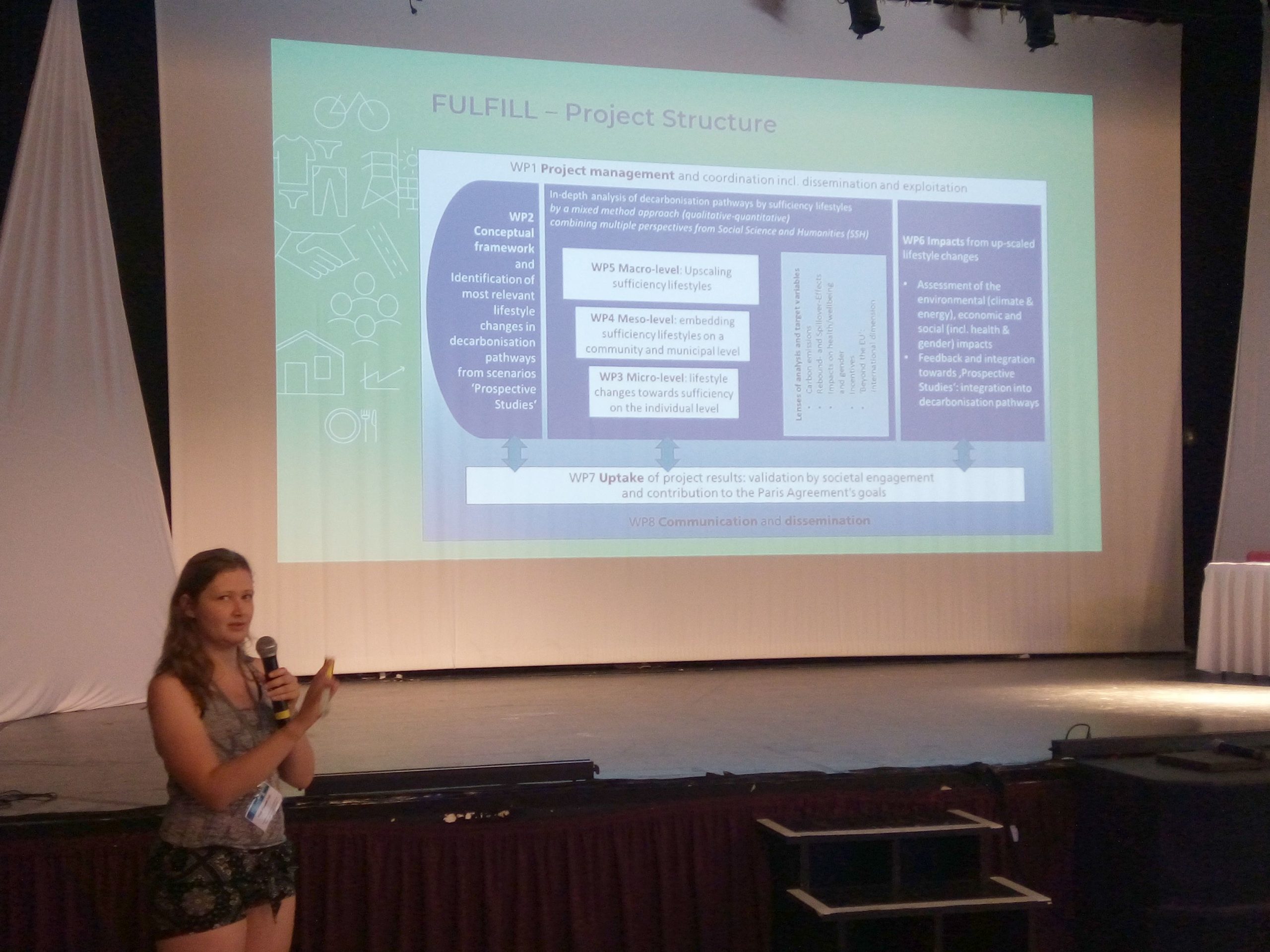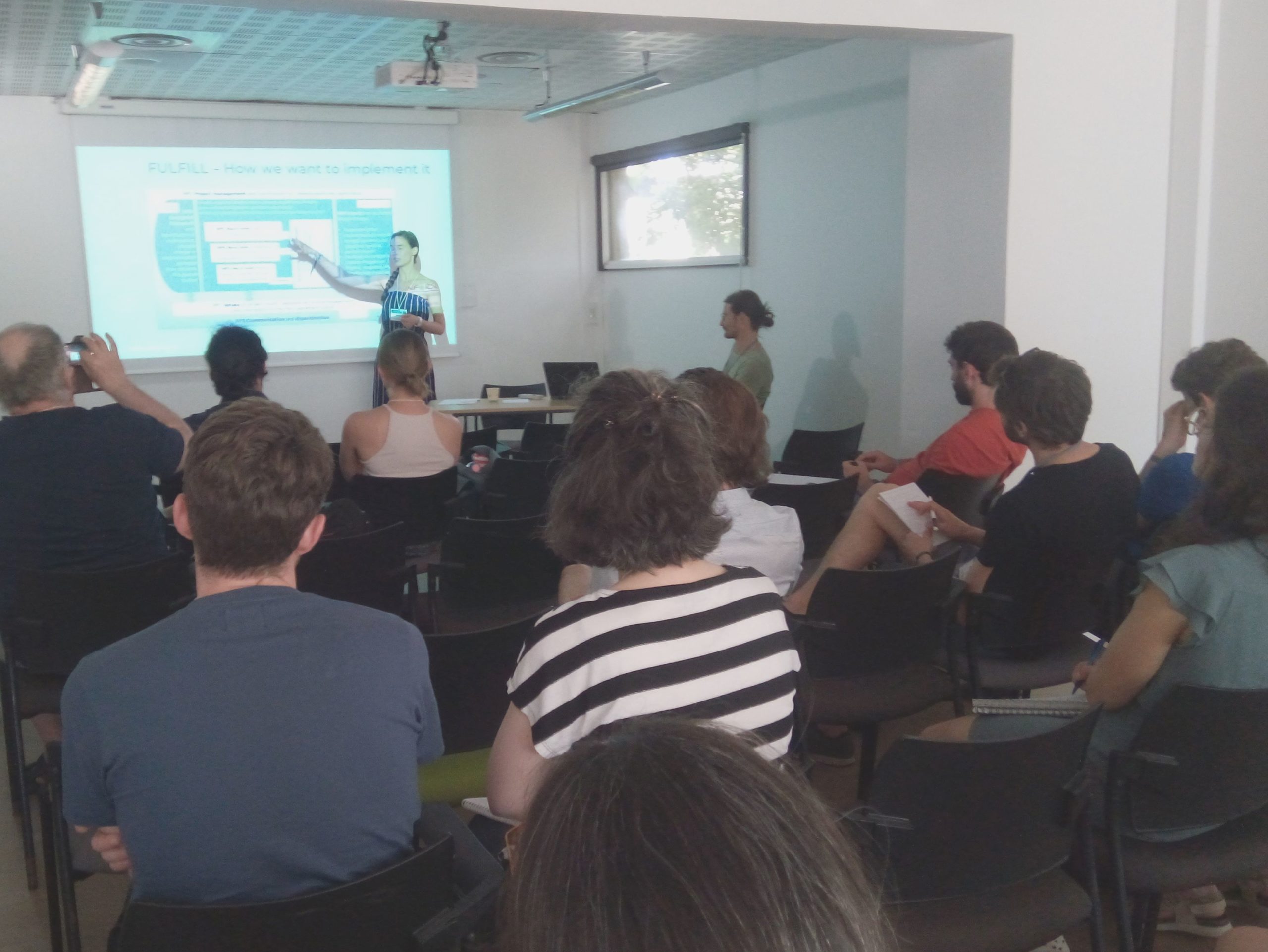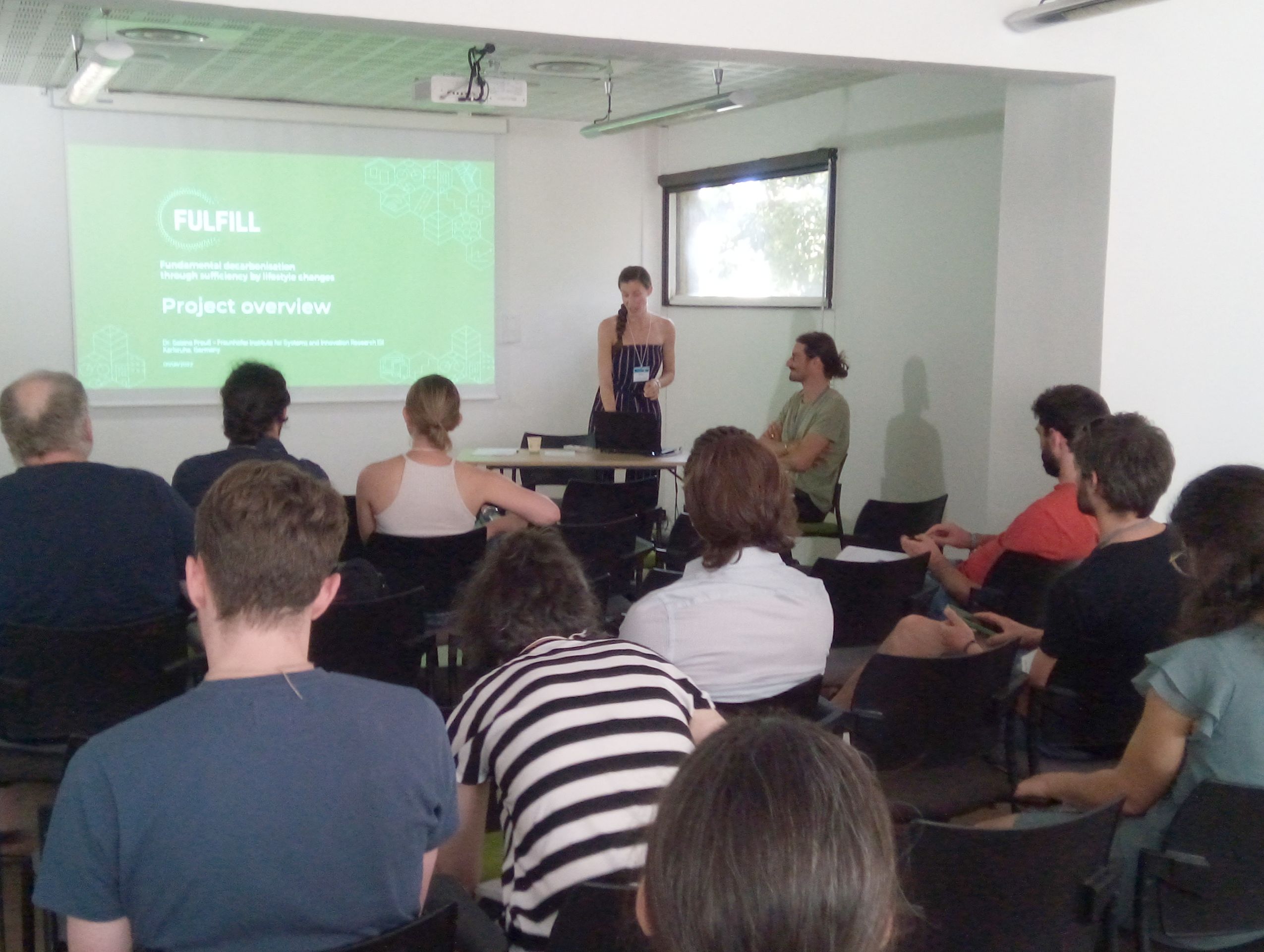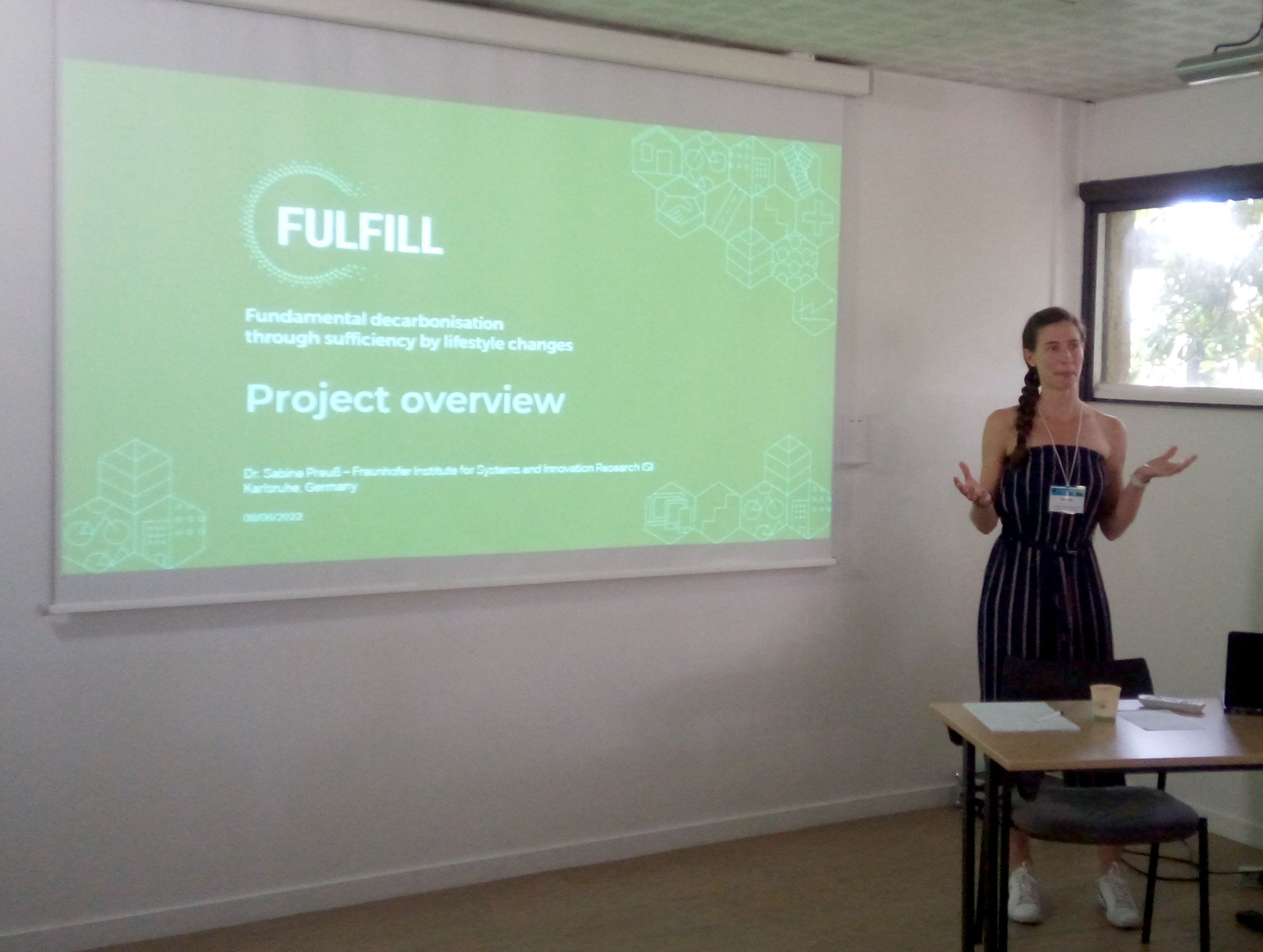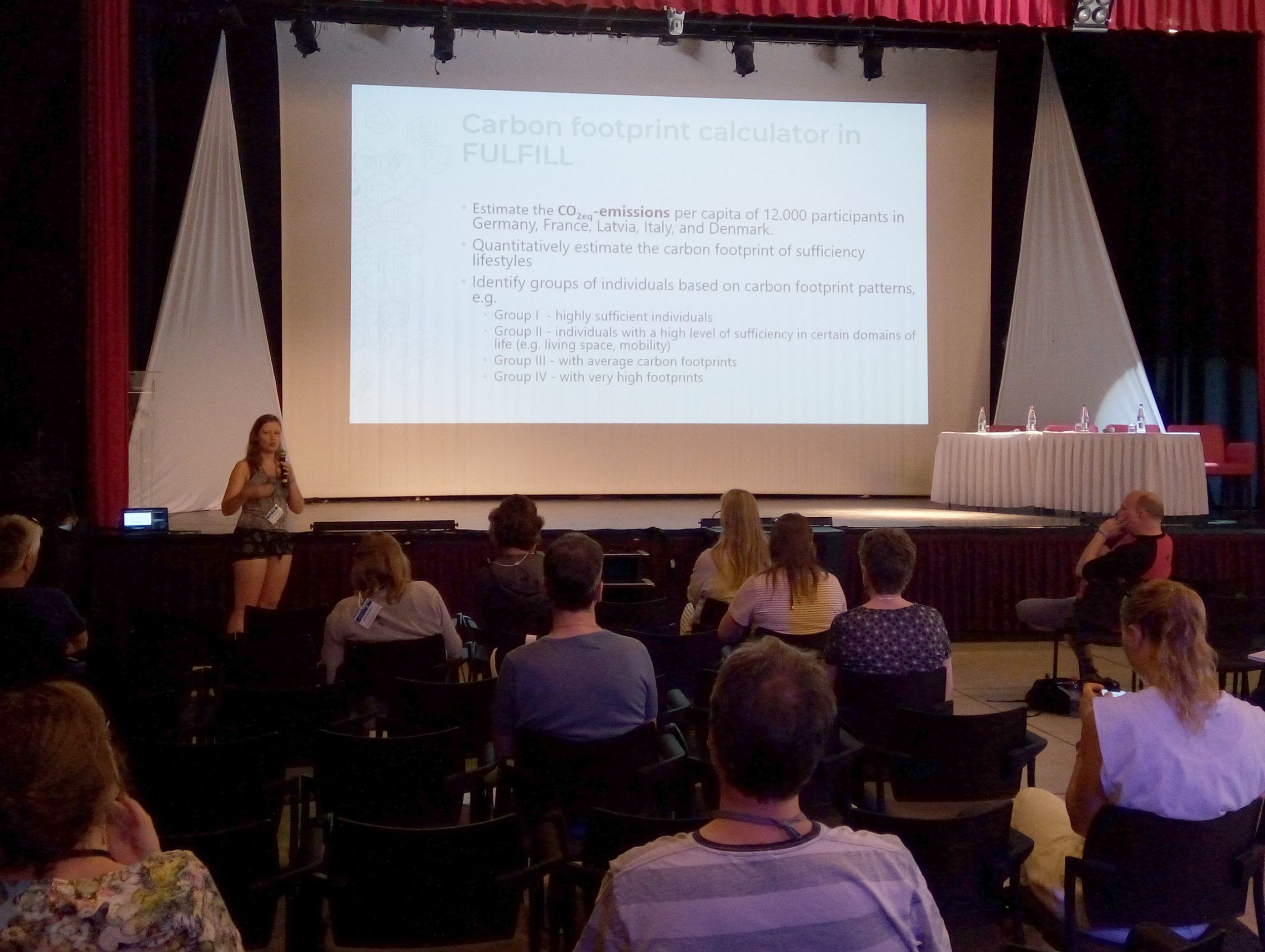The european council for an energy efficient economy (eceee) organises, typically bienially, a conference in Hyères in the South of France. The conference is one of the most important events on energy efficiency in Europe. Already in past years the conference hosted a large variety of presentations also on sufficiency. “Agents of change” was this year’s title of the conference. Between the 6-11 of June partners of our project FULFILL participated, organized sessions and hold presentations.
Importantly, members of the project consortium co-organised an informal session with the title “The potential of sufficiency to achieve EU climate neutrality: insights from three key projects.” In this session Sabine Preuß (Fraunhofer ISI) presented the FULFILL project. Two other projects that were presented are CLEVER (a Collaborative Low Energy Vision for the European Region), a project that develops energy scenarios including sufficiency for 20 EU countries, and CACTUS (Consolidating Ambitious Climate Targets through end-Use Sufficiency), a project that focuses on sufficiency in Eastern European countries. In both projects our consortium member Association Negawatt has a leading role with further partners of FULFILL being involved.
Additionally, Edouard Toulouse (Association NegaWatt) and Lorenzo Pagliano (End-Use Efficiency Research Group of Politecnico Milano) organized an informal session about sufficiency definitions. During this session Lorenzo Pagliano presented first results from WP2 of FULFILL on the literature review and the FULFILL nomenclature (sufficiency habits, physical infrastructure, social framework).
In the official summer study panels, Edouard Toulouse (Association NegaWatt) presented the rising role of sufficiency in the French energy debate: an analysis of different energy scenarios to show how sufficiency is increasingly integrated in these. Lorenzo Pagliano (POLIMI) presented how bioclimatic design of buildings can provide comfort with low energy needs in warm climates.
Abigail Alexander-Haw (Fraunhofer ISI) presented on FULFILL, the calculation of carbon footprints and the identification of low-carbon clusters in Germany. 30-40 participants engaged with her in a discussion afterwards. Furthermore, Sabine Preuß presented at the conference, not strictly on sufficiency, but on how public charging points influence the adoption of electric vehicles.
Sufficiency was part of further presentations with the work of consortium members for example quoted during a presentation of Prof. Tina Fawcett (Oxford University), who talked about “The expected role of individuals in the transition to net zero: policies and pathways facilitating an active role”. Other presentations on sufficiency included:
- Sufficiency in the building sector in France: its contribution towards carbon neutrality by 2050 (Albane Gaspar)
- Learning to consume less energy through strategies of sufficiency (Chiara Tellarini)
- System change by lifestyle change (and vice versa): a multi-stakeholder approach to (policy) intervention design for reducing the consumption of clothing (Kevin Broecks)
- Organizing energy sufficiency: a framework to envision and foster energy sufficiency at a territorial scale (Mathias Guerineau)
- Architects as agents of change – designing to support a sufficiency-oriented dwelling practice (Griet Verbeeck)
- From Kyoto to Paris and Glasgow: overview of international climate agreements and regimes, their limitations, and the role on energy efficiency and sufficiency (Paolo Bertoldi – Joint European Research Centre)
- The material impacts of an energy transition based on sufficiency, efficiency, and renewables (Emmanuel Rauzier)
Just a week before the eceee summer study Lorenzo Pagliano and Anja Bierwirth (Wuppertal Institute) were invited as speakers in the plenary session at the “Assises Européennes de la Transition Energétique”, in Geneve about sufficiency and FULFILL. The videorecording is here.
Below you find impressions of both events.
